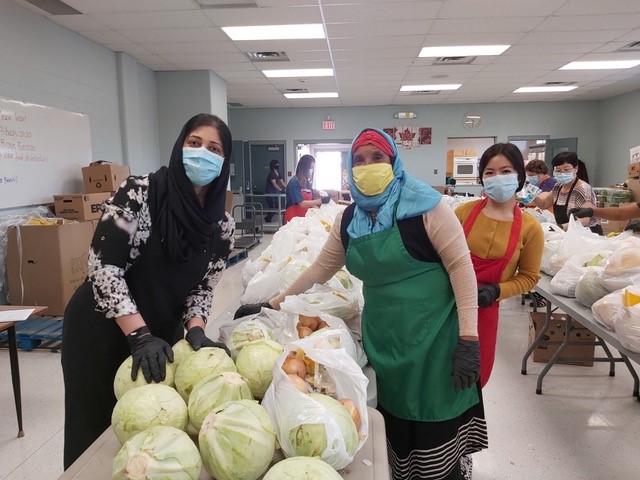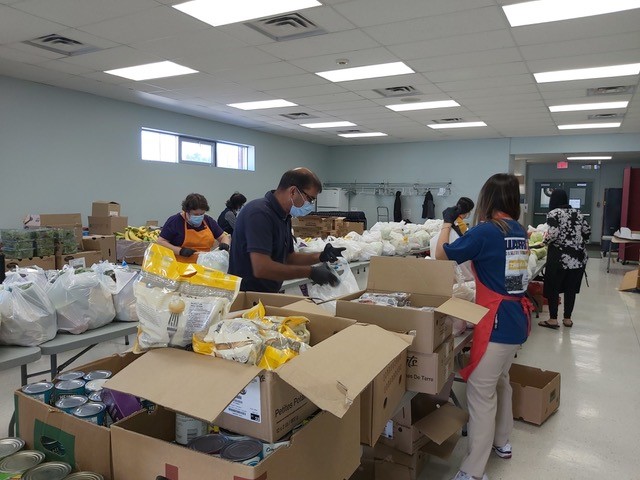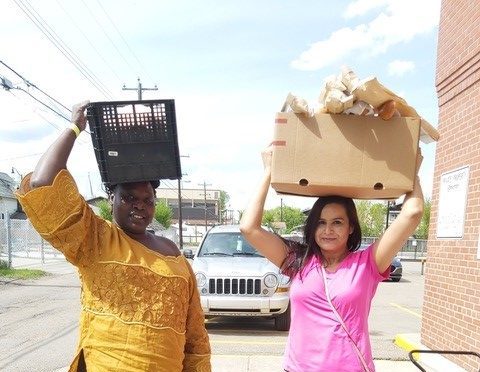Families in ethnocultural minority communities experience food insecurity in the best of times, and COVID-19 has only increased their need for food.
Receiving nutritional food can be difficult for families facing food insecurity, which is why the Multicultural Health Brokers Cooperative (MCHB) increased their output of food hampers and developed a way to determine how much food each family needs.
“Food security is an emerging issue among many demographics, and COVID-19 has presented financial challenges that have also put families in the deep end of poverty,” said Julia Tran, Community Resource Coordinator for the Grocery Run Program at MCHB.

The Grocery Run Program is an emergency food initiative that distributes food weekly to migrant families with emergency food needs. The program originated from a 2013 research study at the University of Alberta and was spearheaded by MCHB.
Financial challenges and soaring unemployment rates in the community increased the demand for food. A significant number of individuals were employed in harder-hit industries, such as hospitality and food and service, which disproportionately hire members of ethnocultural communities. Many people lost their jobs and needed extra help with provisions, which put a strain on the Grocery Run’s resources.
“We had to scale up significantly, and so this meant that we needed a larger space to operate,” Tran said. “We needed additional human resources and we’ve also required additional financial resources so that we can adequately respond to the needs of the families to ensure that they are kept well at this time.”

A $50,000 grant from Edmonton Community Foundation allowed MCHB to ensure families are receiving a sufficient amount of food during the pandemic.
The grant comes from the Government of Canada’s $350-million Emergency Community Support Fund, (ECSF), which aims to help charities and non-profit organizations adapt and increase frontline services for vulnerable populations during COVID-19.
Together, the Canadian Red Cross, Community Foundations of Canada and United Way Centraide Canada are collaborating with the Government of Canada to flow ECSF support to those who need it most right now.
“Grocery Run involves a really strong partnership, backed up by research and data, so they were well positioned to respond to a spike in food needs among the community they serve,” Craig Stumpf-Allen, ECF’s Director of Grants and Community Engagement says.
Before the pandemic, the Grocery Run program was serving approximately 100 people on a weekly basis. Now, they are serving more than 400 families.
MCHB also created a calculator with the School of Public Health at the University of Alberta to ensure that each family is receiving enough food. Inputting the age, gender, and the number of people from a family into the calculator will output the nutritional requirements based on the food items commonly distributed. The calculator also aids in determining the cost of food.
“Truly we are very grateful for the financial resources that have been provided,” Tran said. “The funds provided by ECF have allowed us to ensure that families are not just surviving at this time, but actually kept well.”
Learn more about the Emergency Community Support Fund.
The Emergency Community Support Fund
Funded by 
